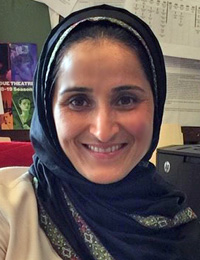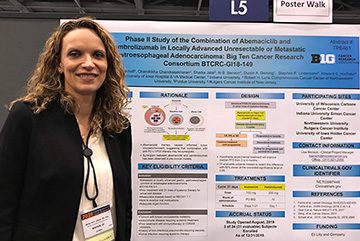June 1, 2020:
 As New Jersey’s only National Cancer Institute (NCI)-designated Comprehensive Cancer Center, Rutgers Cancer Institute of New Jersey’s team of internationally recognized physicians and researchers is driven by a singular focus and mission, to help individuals fight cancer. Through the transformation of laboratory discoveries into clinical practice, we target cancer with precision medicine, immunotherapy and clinical trials and provide the most advanced, comprehensive, and compassionate world-class cancer care to adults and children. This mission is being accomplished in partnership with RWJBarnabas Health. Rutgers Cancer Institute physicians and scientists work side by side to make sure the most sophisticated treatments are delivered to our patients quickly and safely – the future of cancer treatments today. Read More
As New Jersey’s only National Cancer Institute (NCI)-designated Comprehensive Cancer Center, Rutgers Cancer Institute of New Jersey’s team of internationally recognized physicians and researchers is driven by a singular focus and mission, to help individuals fight cancer. Through the transformation of laboratory discoveries into clinical practice, we target cancer with precision medicine, immunotherapy and clinical trials and provide the most advanced, comprehensive, and compassionate world-class cancer care to adults and children. This mission is being accomplished in partnership with RWJBarnabas Health. Rutgers Cancer Institute physicians and scientists work side by side to make sure the most sophisticated treatments are delivered to our patients quickly and safely – the future of cancer treatments today. Read More

 The Big Ten Cancer Research Consortium recently appointed Kari B. Wisinski, MD, associate professor of hematology/oncology, Department of Medicine at University of Wisconsin School of Medicine and Public Health, as chair of the consortium’s
The Big Ten Cancer Research Consortium recently appointed Kari B. Wisinski, MD, associate professor of hematology/oncology, Department of Medicine at University of Wisconsin School of Medicine and Public Health, as chair of the consortium’s 



















Subscribe to the Big Ten CRC Newsletter X
X Facebook
Facebook YouTube
YouTube